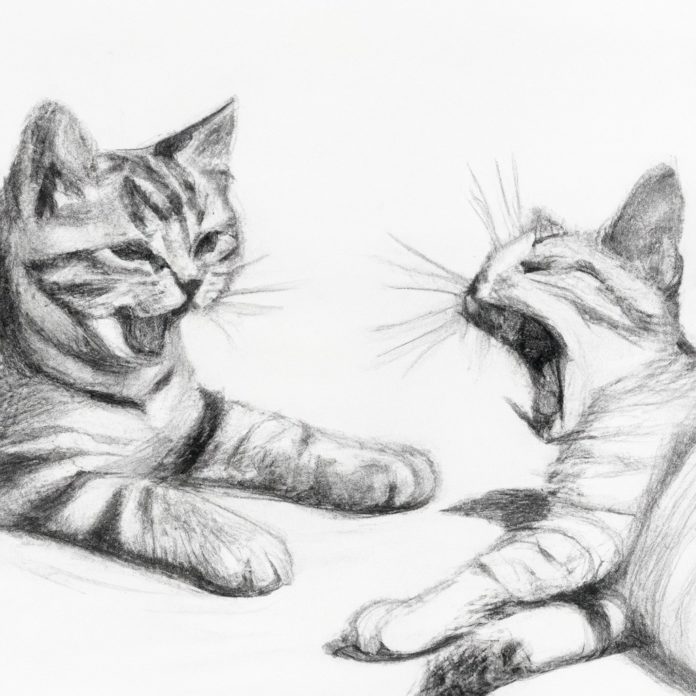Dear VetBabble,
I just got my kitten spayed yesterday. She is still lethargic and not eating, and my other cat keeps hissing and growling. What do I do? Is this normal? It can take up to 48 hours for an anaesthetic to wear off, although normally only 24 hours in younger, fit animals. What is her gum color like? Is her wound bleeding? If she is pale or bleeding from her wound, should I take her back to be checked? Does she have pain relief from the vet?
Post-Spay Recovery: Monitoring Your Kitten’s Health and Behavior
First of all, congratulations on taking the responsible step of spaying your kitten! As mentioned in our article Desexing Cats is More Common than we Think, it is a common and essential procedure to maintain your cat’s overall health and prevent overpopulation.
After a spaying procedure, it’s normal for your kitten to feel a bit lethargic and possibly not eat as much as usual. However, it’s important to monitor her closely, as some signs may indicate a complication. Most young and healthy animals should recover from the anesthesia within 24 hours, but for some, it might take up to 48 hours. To learn more about anesthesia risks and how they may impact your pet, check out our article on What are the Anesthesia Risks for my Pet?.
In terms of how her gum color looks, normal gum color should be a healthy pink. Pale gums might indicate a problem, such as blood loss or anemia. It would be best to consult your veterinarian if you notice pale gums. Additionally, if her wound is bleeding or appears abnormal in any way, don’t hesitate to contact your vet.
Helping Your Kitten and Other Cats Adjust Post-Surgery
It’s essential to ensure your kitten is comfortable and pain-free during recovery. At the time of surgery, your veterinarian should have provided pain relief, which should last for the first day or two after the procedure. If you’re unsure whether your kitten has received pain relief or if she seems to be in discomfort, contact your vet for advice.
As for your other cat’s behavior, it’s not uncommon for other pets to become temporarily aggressive or anxious when a member of their family returns home after surgery. Your kitten might have a different scent or behave differently due to the anesthesia or surgery, which can make the other cat feel threatened or insecure. To help them adjust to the change, consider introducing your kitten back into the household gradually, beginning with them separated in different rooms.
Our article on First Night Home with a New Kitten: What Should I Expect? provides some advice on managing the behavior and stress of all your pets. Although you didn’t just bring home a new kitten, the tips in the article can still be applied to your situation to help your cats adjust to your kitten’s changed behavior and scent after spaying.
Addressing Skin Problems in Cats Post-Surgery
Beyond the immediate concerns of bleeding or pale gums, another issue you may encounter after spaying your kitten is skin irritation or complications near the surgery site. In our article Skin Problems in Cats: Common Causes and Treatment, we explore the various causes of skin problems and how to address them.
It is essential to monitor the condition of your kitten’s skin near the surgery site to ensure that she isn’t licking or scratching excessively. Excessive licking or scratching can lead to skin infection or irritation, so it’s crucial to address any issues promptly. As always, consult your veterinarian if you’re concerned about your kitten’s recovery or the healing of her surgical wound.
In summary, it’s common for a kitten to be a bit lethargic and not eat normally after being spayed, but be vigilant about monitoring her overall health and behavior. Keep a close eye on her gum color, the cleanliness of her wound, and her activity levels. If you have any concerns, don’t hesitate to contact your veterinarian. Lastly, make sure you help both your kitten and the other cat in your household adjust to the post-surgery changes by introducing them gradually and managing their behaviors and stress levels.









